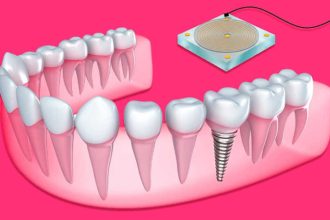Marijuana has hit the mainstream, with many brands and celebrities openly and actively advocating for the sticky, green herb. As more and more states legalize recreational weed, consumers are looking for weed in more and more places — and one of the most popular industries to adopt cannabis compounds is skincare.
It isn’t difficult to find skincare products that include compounds from marijuana or hemp, like THC and CBD. However, before you automatically assume that weed works wonders for your wrinkles, you should learn a little more about what, if anything cannabis is doing to your skin.
How Cannabis Topicals Work
Cannabis topicals include any THC- or CBD-infused product that is intended for application to the skin, like lotions, balms, salves, soaps, body oils or creams. It is important to note that cannabis topicals interact with the body in a different way to other cannabis products, like those ingested (like edibles) or inhaled (rollies, pipes, vapes).
When you eat an edible or smoke a pipe, you are ensuring that cannabinoids and other cannabis compounds enter your bloodstream, either through the lungs or via the digestive tract. Through your blood, these compounds make their way around your entire body, to include your brain, so you are sure to experience all-over effects like euphoria and relaxation.
In contrast, the skin stands as a barrier between the topical product and your bloodstream. In fact, that is your skin’s role; as the body’s biggest organ, it is supposed to protect your more delicate inner workings from the fluctuating and dangerous external environment. If everything that touched your skin was absorbed into your bloodstream, you wouldn’t survive for long; your body would experience unending infection, poisoning and more from the bacteria and toxins that make up the world.
Topicals applied to the skin typically only affect the region of application. You won’t get high by using a topical, but you could experience some minor effects on your skin and perhaps the muscle tissue beneath. Thus, topicals are most beneficial for those looking for highly localized relief, like those suffering from joint pain, muscle aches or skin conditions that can benefit from cannabis compounds. So, the question stands: Does cannabis improve a skincare regimen, or is it a superfluous ingredient?
Does Cannabis Have Any Effect on Skin?

Frustratingly, the answer seems to be: maybe. The whole truth is that cannabis hasn’t been legal long enough for researchers to understand much about its effects on the body and mind, either in short- or long-term use. The information we have about cannabis today is largely informed by small, short or early research that requires more robust study to confirm.
Still, there is some good evidence that cannabis could be beneficial in skincare in some circumstances. Cannabinoids seem to have three useful effects on skin: They are anti-inflammatory, anti-bacterial and anti-fungal. Many skin conditions are the result of inflammation, and others are radically worsened by the presence of bacteria or fungus. For example, acne is caused by bacteria seeping into pores and the body responding with inflammation, which causes the redness and bumps. Similarly, psoriasis is a skin condition in which the body attacks skin cells, causing irritated patches of inflammation. Sometimes, these patches can become infected by bacteria or fungus in the environment.
Also Read: CBD Oil: What Is It; Is It Actually Safe For You?
You might integrate cannabis topicals into your skincare routine if you suffer from a skincare condition affected by inflammation, bacteria or fungus — but before you do, you should talk to your doctor about how cannabis might interact with any other ongoing treatments. What’s more, you should try to source your topicals from an Ann Arbor dispensary, which is legally allowed to sell full-spectrum CBD and THC cannabis products. Cannabis skincare from non-dispensaries is less likely to contain enough active ingredients to have any effect on your skin.
If you don’t have any serious skin conditions that require cannabis treatment, it isn’t likely that cannabinoids add much to your skincare regimen. However, if you like the tingly pain relief provided by topicals, there is no reason not to indulge in a THC lotion every now and again. As long as you are otherwise taking care of your skin — with a healthy diet, SPF sunscreen and plenty of moisturization — a topical could be a fun addition to your routine.














